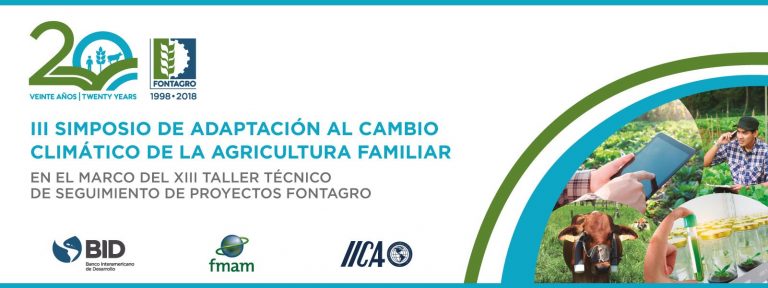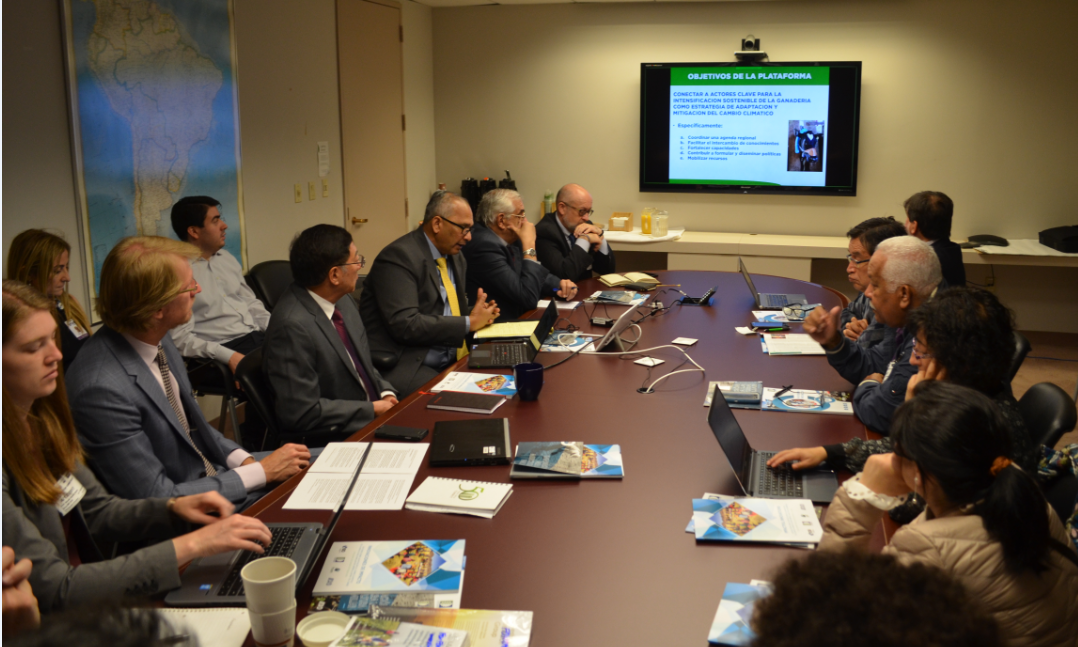The final summary report is now available from the ‘International Conference on Agricultural Greenhouse Gas Emissions and Food Security – Connecting Research Policy & Practice’ focused on agricultural GHG emission reduction in light of climate change, sustainable agriculture, and food security.
The conference was held on the 10-13 September 2018 in Berlin, Germany, alongside the GRA Council meeting, and brought together approximately 300 scientists and stakeholders from government, public administration, industry and farmer organisations. Thematic discussions brought together participants to discuss key challenges facing agricultural production and the reduction of GHG emissions from both a scientific and policy perspective identifying a key statements and recommendations for each topic.
A few key take away messages:
- A greater focus on how to act upon scientific findings and implement scientific recommendations is needed
- Move to a science of implementation, not just the science of options or measurement
- More boldness in policy design: large-scale initiatives and learning
- Co-designing solutions with farmers, investors, input suppliers, advisory services to mainstream mitigation is essential
- For MRV regional data platforms, novel methods and information systems are promising solutions
- Higher priority to reduce loss and waste: food and other resources – circularity
- Ensuring effective policy coordination and coherence
- political will – we need it all: top-down and bottom-up, good governance
- Koronivia Joint Work on Agriculture: science, practice and policy – all have a role to play
The conference was organised by the Global Research Alliance (GRA) and the Joint Programming Initiative on Agriculture, Food Security and Climate Change (FACCE-JPI) of the European Commission, in partnership with CGIAR-CCAFS and funded by the German Federal Ministry of Food and Agriculture and supported by its Federal Research Institute for Rural Areas, Forestry and Fisheries (Thünen Institute).
Each organisation presented to conference participants on their key research achievements and outcomes and provided a wrap up of the key outcomes from the conference. The organisations were represented by:
- Hayden Montgomery (GRA Special Representative)
- Hartmut Stalb (Chair of FACCE – JPI)
- Bruce Campbell (CCAFS & CGIAR Representative); and
- Lini Wollenberg (Flagship Leader of Low Emissions Development at CCAFS (USA))
Click here to view the final summary report.
Alternatively, to learn more about the conference click here for the final summary slides.
The ‘International Conference on Agricultural Greenhouse Gas Emissions and Food Security – Connecting Research Policy & Practice’ focused on agricultural GHG emission reduction in light of climate change, sustainable agriculture, and food security. The conference was held on the 10-13th September 2018 in Berlin, Germany.
The conference outcome was summarised by:
- Hayden Montgomery (GRA Special Representative)
- Hartmut Stalb (Chair of FACCE – JPI)
- Bruce Campbell (CCAFS & CGIAR Representative); and
- Lini Wollenberg (Flagship Leader of Low Emissions Development at CCAFS (USA))
To learn more about the conference click here for the final summary slides.
Alternatively, click here to view the AgriGHG conference video and final report.
The Global Research Alliance participated in our partner FONTAGRO’s 20-year celebration last month. The celebration coincided with the III Symposium on Adaptation to Climate Change of Family Farming in Washington DC, within the framework of the Third Workshop on Technical Follow-up of FONTAGRO Projects, at the offices of the Inter-American Development Bank (IDB) in Washington DC, USA on 4-8 June 2018.
Researchers and representatives of national research institutes got together to analyse the innovations generated in the projects of adaptation to and mitigation of climate change of family farming in the region.
Photos and video footage of the event can be found here.
A session on Soil Denitrification will be held at the 2019 Soil Science Society of America (SSSA) International Soils Meeting, entitled “Denitrification in Agricultural Soils: Integrated Control and Modelling at Various Scales” Jan 6 -9 in San Diego.
Denitrification is the key process returning reactive nitrogen to the atmosphere. Despite being intensively studied for more than 100 years, soil denitrification rates and emissions of its gaseous products can still not be satisfactorily predicted. The complexity of the process in response to highly temporally and spatially variable soil properties (matrix to field scale) prevents robust prediction of denitrification rates and gaseous emissions.
Keynote speakers:
Peter Groffman, Cary Institute of Ecosystem Studies (to be confirmed)
Marcus Horn, Institute of Microbiology, Leibniz University Hannover (to be confirmed)
N.N.
Call for papers
Oral or poster contributions are invited. Topics include interactions between effects of key factors on denitrification and its gaseous emissions, and modelling of these processes at scales from matrix to field.
Early registration is until July 24; final registration is Aug 8.
The March issue of the Joint Programming Initiative on Agriculture, Food Security and Climate Change (FACCE-ERA-GAS) newsletter is now available.
This issue mentions the International Conference on Agricultural GHG Emissions and Food Security – Connecting research to policy and practice (September 10-13), which will be held alongside the GRA’s annual Council meeting in Berlin (September 10-11).
Read the newsletter here
The ‘International Conference on Agricultural Greenhouse Gas Emissions and Food Security – Connecting Research Policy & Practice’ has opened a call for abstracts.
The conference will focus on agricultural GHG emission reduction in the light of climate change, sustainable agriculture, and food security.
Under the guiding question “What are options, global potentials and visions to the mitigation of greenhouse gases and the enhancement of carbon sinks by agriculture?” we would like to broaden the scope of the scientific conference and focus on holistic, integrative state-of the art research in the light of political and societal challenges relevant for implementing climate action under the Paris agreement.
Abstracts must be submitted by the 30th April using the website: http://www.agrighg-2018.org.
The European Geosciences Union (EGU) General Assembly 2018 is co-organising a session with the Global Research Alliance that is dedicated to peatland management. Contributions from experimental and modelling work from different aspects (e.g biogeochemistry, vegetation ecology and socioeconomy) as well as work addressing policy implementation of management practices are welcomed.
The use of organic soils is heavily debated in some countries but receives too little attention in others, and political challenges related to the use of organic soil differ greatly between countries. This is an opportunity to raise awareness on peatlands and provide a platform for discussions.
The abstract submission is open and deadline for the receipt of abstracts is 10 Jan 2018, 13:00 CET. More information about submissions can be found here
Session ID: BG 3.20
Session title: Environment-friendly management of organic soils and paludiculture – from innovation to implementation
Session description: Globally, 10–20% of peatlands have been drained for agriculture or forestry, and these emit 6% of global CO2 emissions. There are countries in Europe that have more than 60% of their agricultural emissions originating from cultivated organic soils, and the fate of South-East Asian peatlands is of global concern. However, there are peat-rich countries that are unable to include these emissions in their emission statistics due to lack of data. Innovative mitigation measures that sustain economically viable biomass production while diminishing environmental impacts and supporting ecosystem services of organic soils are vigorously studied. How to implement innovations in practice and into national GHG inventories is a challenge. We invite studies addressing new, innovative management practices on organic soils. We also welcome contributions that address policy coherence and identify policy instruments for initiating and implementing new management practices on organic soils.
Session conveners: Hanna Silvennoinen, Jens Leifeld, Kristiina Regina, Bärbel Tiemeyer, Jagadeesh Yeluripati
For unanswered questions, please contact Hanna Silvennoinen ([email protected]).
At a 23rd Conference of the Parties (COP23) side event in Bonn, Germany yesterday with the World Business Council on Sustainable Development, the Global Research Alliance’s Special Representative Hayden Montgomery argued that more innovation was needed to combat agricultural greenhouse gas emissions.
His argument is supported by the 2016 article ‘Reducing emissions from agriculture to meet the 2°C target’, published in Global Change Biology. The article summarises the findings of a number of scientists, including Global Research Alliance representatives, which showed that current technologies can only reduce 20-40% of the agricultural emission reductions needed in order to meet the international 2 degree greenhouse gas emissions target which was agreed to by 100 countries in Paris in 2015.
Our side event from the FAO Conference 40th Session “Partnering to Scale up Climate Action by Countries in the Agricultural Sectors” is now available as a video to watch on demand.
The side event was jointly organised by the Global Research Alliance on Agricultural Greenhouse Gases (GRA), the United Nations Environment Programme (UNEP) as host of the Climate and Clean Air Coalition (CCAC) and FAO. The Speakers from FAO and GRA partner organisations and Member countries discuss in particular the role of strategic partnerships in maximizing its impact on the ground through support to countries to implement the agriculture commitments of their NDCs.
During the meeting, topics of common interest were identified in the countries to establish a coordinated research agenda. Prioritized the design of a three-year action plan and the communication strategy and knowledge management that will accumulate the platform. The platform will also work to mobilize resources for research and innovation, as well as identify initiatives and ongoing projects of participating institutions with promising results that can be replicated. The platform will be open to the incorporation of new actors from the private sector and NGOs working on the issue.
The main objective of the platform is to establish alliances with key audiences to intensify livestock production systems in a sustainable manner, such as a regional research strategy to adapt and mitigate the effects of climate change in LAC. The platform will coordinate a regional agenda on the subject and share knowledge and strengthen the capacities of farmers and key audiences in the public and private sector on the issue.
Fundamentally, the platform will collaborate with the formulation and dissemination of policies and the mobilization of resources. The beneficiaries of this project are more than 150 researchers, 400 extensionists and professionals, more than 1000 graduate students, and in the course of university degrees in animal production, veterinary and soil, among others, and more than 10 producer organizations, as well as Decision-makers at national and regional public policy levels.
The platform is initially funded by funds from the agreement between FONTAGRO and MPI to build capacity in the area of GHG measurement in Latin America’s agricultural systems and a project on “Technology Transfer Mechanisms and Climate Networks In LAC, “executed by FONTAGRO and financed by the Global Environment Facility (GEF) and the Inter-American Development Bank (IDB).


